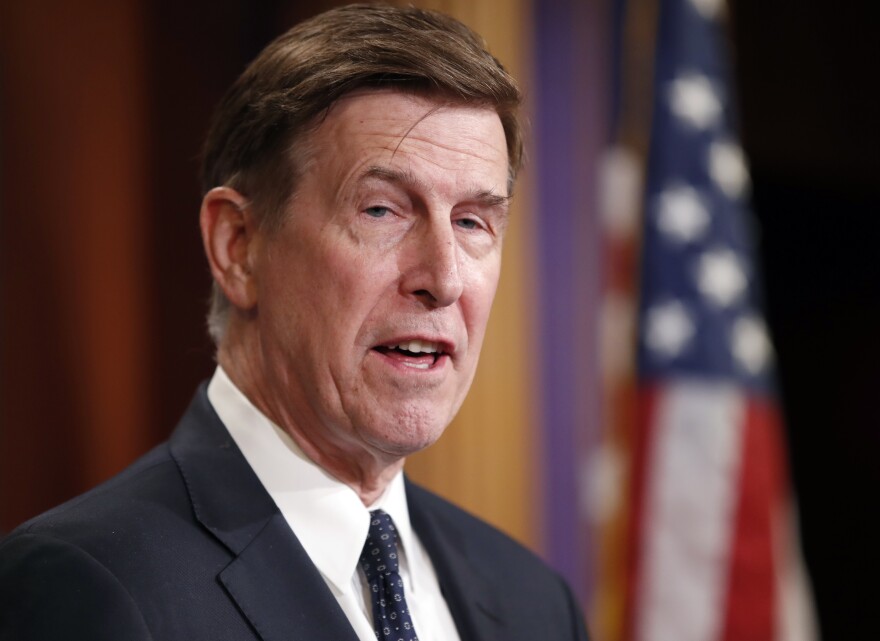One Virginia Democrat is proposing a sweeping overhaul to how the nation’s congressional districts are drawn. Correspondent Matt Laslo has the details from Washington on a bill that could take the politics out of how the nation’s lawmakers are chosen.
Virginia has a Democratic governor, two Democratic U.S. Senators, and went for Hillary Clinton in the last election. Still, in the U.S. House the state is represented by seven Republicans and only four Democrats, because Republican state legislators in Richmond drew the lines. But in Maryland and Massachusetts Democrats drew the lines to keep Republicans locked out. Northern Virginia Democrat Don Beyer has introduced a bill that would set up independent commissions to draw congressional districts.
“Less than 20% of Americans approve of the way Congress is doing its job. A big reason for this is the incredible polarization. The hollowing out of a political center has taken hold of Congress over the last two decades.”
But Beyer’s bill goes further than just setting up independent commissions to draw district lines. He wants ranked, choice voting for House members, which means voters would list their top candidates instead of picking between just a Republican and a Democrat. Then candidates would slowly be winnowed out of the race if they didn’t meet the threshold, and as the lowest vote getters are knocked out voters second and third choices then garner their support, which Beyer says empowers all of us.
“This allows voters to rank candidates in their order of preference. Rather than simply vote for their top choice. So every vote they throw, cast, actually matters.”
Beyer also wants to replace single member districts and replace them with multi-winner districts, so as many as five lawmakers would represent the same area.
“Think of it as a hybrid of what we have today and Senate seats, in which two people jointly represent an entire state. And the curse of gerrymandering largely disappears.”
Republicans are brushing aside Beyer’s proposal though. Virginia Congressman Rob Wittman says Congress needs to stay out of how districts are drawn.
“I think it's a state issue, I think it ought to be up to the states. The state does the districting as far as congressional districts, the state house delegates districts. It really ought to be a state issue, I think the state needs to determine the issue. It’s been up before the Virginia General Assembly a number of times, so I think it's really a state issue.”
Wittman also disagrees with Beyer’s notion that independent commissions could ever be nonpartisan.
“Ultimately the voters make the determination for what they see as fair. For those folks, they say somehow it's going to be a non-partisan effort. It'll never be a non-partisan effort, at best it will be a bipartisan effort. And I think that the voters in Virginia will determine how they want to see it happen.”
Congressman Beyer is also struggling to convince some of his fellow Democrats to get on board. Virginia Democratic Congressman Bobby Scott says he wants politics removed from how districts are drawn, but he doesn’t know if Beyer has the right approach.
“But it’s such a novel idea, that I’m not sure it’ll work in congressional races. And also, this part of changing the single-member districts in congressional elections to three member districts. Which would include a huge area, increasing expense for running, it’s already expensive enough.”
Even though his effort faces an uphill battle, Congressman Beyer says big changes are needed to fix Washington.
“A key reason for the current dysfunction is the lawmakers have been choosing their voters rather than voters choosing their lawmakers. Our legislation would fix that by making the redistricting process non-partisan and transparent.”
While Beyer’s bill on redistricting may never see the light of day in a GOP controlled Washington, he says he’s just glad to get the dialogue started.
This report, provided by Virginia Public Radio, was made possible with support from the Virginia Education Association.




